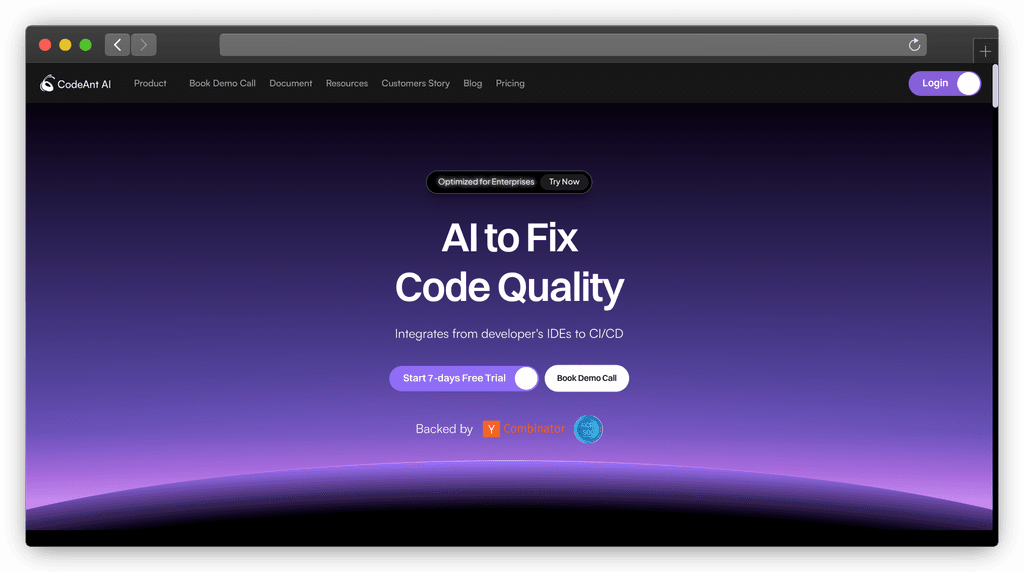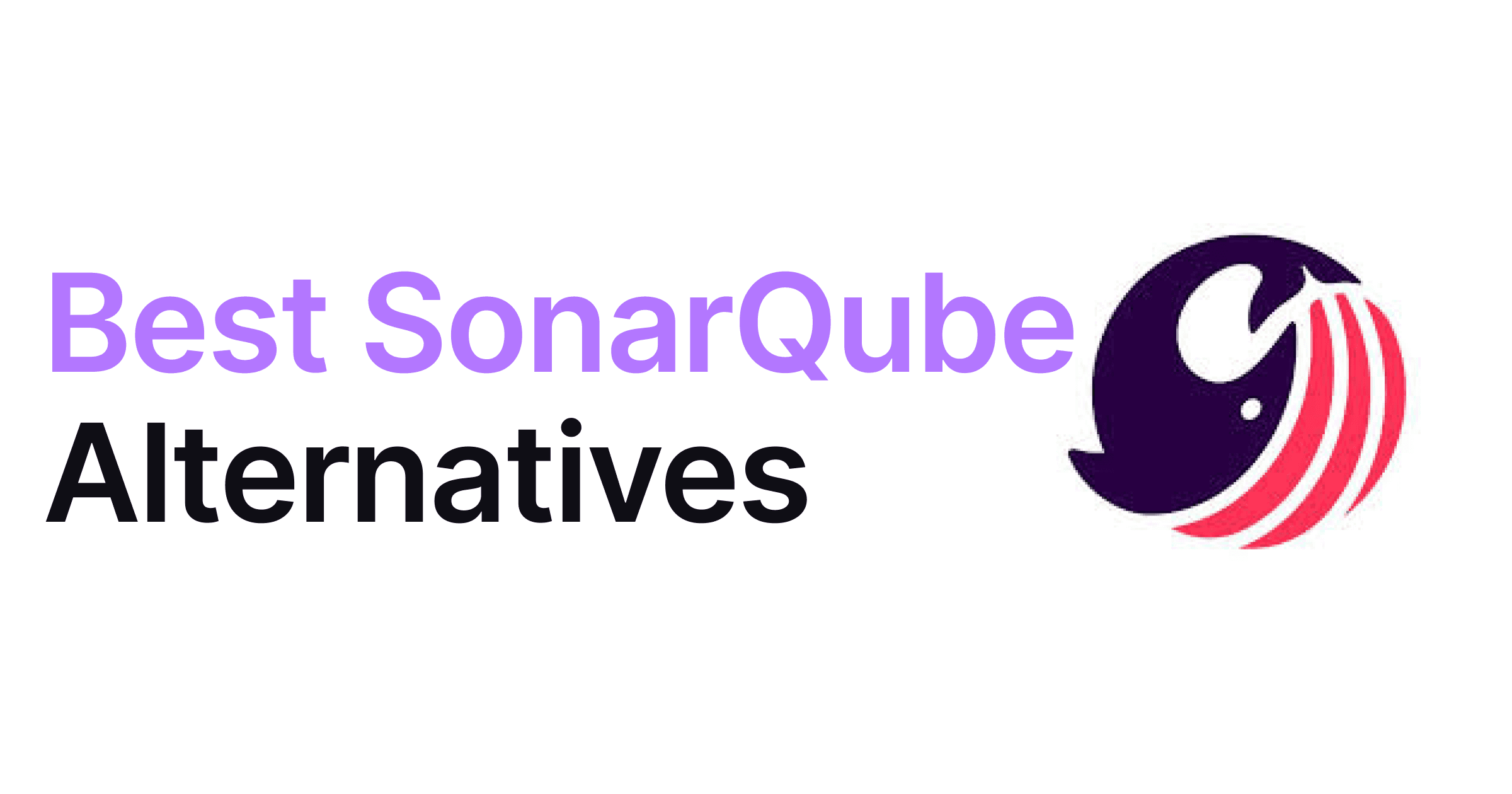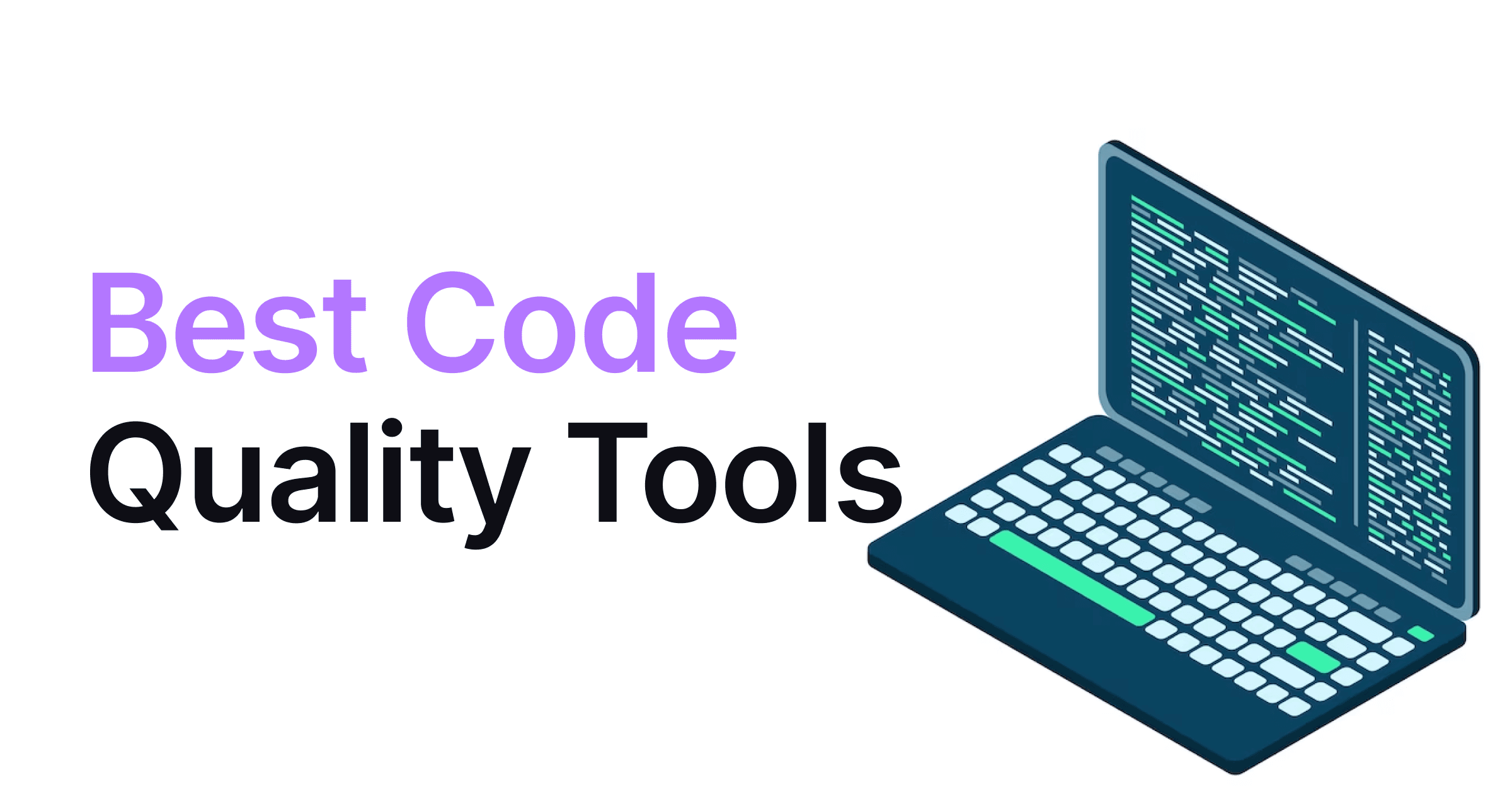GitLab Code Review
AI Code Reviewer
Amartya Jha
• 04 December 2024
As a developer to maintain high-quality software, you know the importance of code reviews. They are the backbone of software. Helping teams catch bugs, ensuring code is clean and maintainable, and also helping developers learn things. If you are using GitLab, you already have access to a built-in tough code review system.
We know every team is not the same; they all have different workflows, and most of the time default tools don't exactly cover the need, and this is the same place where there are multiple tools in the market filling the gap by helping you automate these tedious checks, help with insights, and make the overall code review process smoother and faster.
In this article, I will walk you through six amazing AI tools that integrate with GitLab to help you streamline the whole code review process.
Let's dive in.
What exactly is code review?
Code review is a critical process in software development where devs examine each other's code for quality, correctness, and maintainability.
Why? To maintain high-quality, scalable codebases and reduce technical debt.
By implementing regular code reviews, teams can
catch bugs early,
ensure coding standards compliance, and
share knowledge across the team.
This process becomes even more streamlined and effective in the context of GitLab code review tools. GitLab's built-in features for code review provide a solid foundation, but third-party tools can further enhance the experience and productivity of dev teams.
Why Use Code Review Tools with GitLab?
GitLab's native code review features are tough, offering features like inline comments, merge request discussions, and approval workflows.
However, integrating additional GitLab code review tools can take your development process to the next level.
For example, some tools offer advanced static code analysis, automatically flagging potential issues before they even reach human reviewers. Others provide more detailed metrics on code quality and also offer AI-powered suggestions for improvements.
By using these tools, dev teams can:
Increase the efficiency of the review process 🏃
Improve code quality and consistency 😀
Support collaboration and knowledge sharing 🧑💼
Reduce the time spent on manual reviews ↘️
Catch more bugs and potential issues before they reach production 🐛
The ultimate goal of using GitLab code review tools is to create and have a more robust, efficient, and collaborative development environment.
Leveraging GitLab's Built-In Code Review Features
Let’s take a look at the native feature GitLab provides for code review.
GitLab's merge request feature is the heart of effective code reviews. You can easily create a merge request when you're ready to integrate your changes into the main branch. What sets GitLab apart is its intuitive inline commenting system. As you review code, you can leave specific and contextual feedback directly on the relevant lines. This promotes clear communication and helps pinpoint areas that need attention.
GitLab code review is a lot more than just commenting. The platform offers discussion threads to engage in meaningful conversations about code changes. You can start discussions on specific lines, files, or the entire merge request. Additionally, GitLab's approval workflows ensure that code meets your team's standards before merging. You can set up approval rules to require sign-offs from designated team members for an extra layer of quality control.
As soon as the merge request is created, GitLab’s CI/CD pipelines can automatically run tests, linters, and security scans. This is a very powerful aspect of GitLab's code review. This means that before human intervention the code also needs to pass the predefined quality gates.
Limitations of GitLab’s Code Review Tools
While the native code review feature in GitLab is powerful but not always enough for larger teams or projects with complex requirements.
GitLab's limitations:
GitLab’s built-in system relies heavily on manual reviews unless integrated with external tools for automation. This slows down processes like formatting or basic security scans, mainly the repetitive checks.
GitLab doesn’t provide deep insights into code health, maintainability, or trends over time without third-party integrations.
For teams with huge repositories or distributed contributors. GitLab’s tools may not handle the volume of reviews or complexity of workflows as efficiently as other tools.
Some workflows require very specific configurations, like AI-powered suggestions or advanced approval conditions, which are not natively supported.
Understanding the limitations is as important because it will help you figure out the actual gaps and help you find the best solution.
Let’s take a look at different solutions that are GitLab’s code review tools.
CodeAnt is an assistant that doesn't just pinpoint issues but helps you fix them. It is designed to reduce code review time by up to 50%. It uses AI:
to find security vulnerabilities,
to find bugs, and
improve code quality
AI PR Summaries
Identifies potential issues as code is written (in real-time), right inside your IDE.
Customizable Rules: Tailor the review process to match your team’s coding standards.
Highlights dead code, duplications, and complex areas for better maintainability.
Security Features: Includes SAST, IaC scanning, and secret detection, ensuring secure code from day one.
Reduces code review time by 50%, thanks to AI-driven PR summaries and detailed insights.
Scales effortlessly to handle large repositories
Supports 30 programming languages and 80 frameworks.
Zero catch, for real it is a perfect fir for all.
Codacy
Codacy stands out as a powerful ally for developers in the GitLab's code review tool market; it streamlines the workflow and boosts code quality. This tool offers a comprehensive suite of features designed to enhance your team's efficiency.
Code Quality Monitoring: automatically checks for code smells, duplications, and complexity issues.
Test Coverage Analysis: Monitors and enforces unit testing coverage to prevent regressions.
Security Dashboards: Identify and prioritize critical security vulnerabilities in your codebase.
AI-Suggested Fixes: Provides actionable fixes that developers can apply directly in their GitLab workflows.
One-Stop Dashboard: View and benchmark the health of all repositories with an easy grading system.
Integrates with GitHub, GitLab, BitBucket, etc.
Supports 49 languages.
Codacy's grading system, while useful, can feel overly simplistic at times, leaving deeper analysis to the user.
Crucible
Crucible, an enterprise-level tool developed by Atlassian, is a powerful addition to your GitLab code review toolkit. It is a powerful peer code review tool that excels in team collaboration.
Inline Comments: Add comments on specific lines of code to make reviews targeted and meaningful.
Batch Reviews: Review changes across multiple commits or branches in a single session.
Detailed Review Metrics: Track participation, completion rates, and review effectiveness for better team insights.
Customizable Workflows: Tailor review processes to suit the needs of your team or project.
Integration with GitLab: Pull commits directly into Crucible for comprehensive code analysis.
Crucible’s setup can be a bit daunting for smaller teams, and the interface isn’t the most modern.
CodeRabbit
CodeRabbit is all about making code reviews smarter and faster using AI. This is compatible with GitLab(obviously) and helps developers focus on what matters, code reviews.
It isn't a one-size-fits-all solution. It can be tailored to your team's specific needs and coding standards. As you use it more, the AI learns and adapts to your project's unique requirements, making the GitLab code review process simple and fast.
AI-Enhanced Reviews: Highlights potential bugs and security flaws in real-time, directly within your pull requests.
Code Quality Checks: automatically flags anti-patterns and suggests best practices.
Customizable Settings: Adjust rules to match your team’s preferences, so reviews feel less like chores.
Easy to Use: Its interface is intuitive and developer-friendly, making adoption seamless.
While the AI is impressive, it occasionally flags non-issues, which can be annoying for experienced developers.
Review Board
Review Board, a powerful open-source GitLab code review tool, goes beyond traditional code review by supporting a wide array of file types. Yes, you can review PDFs, presentations, documentation, and screenshots.
One of the Review Board's standout features is its ability to integrate with static analysis tools and style checkers.
Customizable Workflows: Adapt it to your team’s process; do you prefer informal reviews or strict checks?
Inline Discussions: Add comments directly on code snippets
Integration-Friendly: Works smoothly with GitLab and other VCS
Review Dashboards: A dashboard that contains everything so you are not behind.
While Review Board gets the basics right, its interface can feel outdated, and setting up advanced features might require a bit of hard work 😞.
Quality by Code Climate
Quality tool by Code Climate helps teams enforce standards and maintain clean and maintainable codebases. As it integrates with GitLab, it brings code review insights directly into your pipeline.
Actionable Metrics: Automatically grades your code, identifying hotspots that need attention.
Focus on Trends: Tracks improvements (or regressions) over time, helping teams focus on continuous improvement.
Supports Multiple Languages: From Python to JavaScript, it caters to more than 10 languages.
Its grading system can sometimes oversimplify complex issues that will leave you digging deeper to understand the root cause.
How to Choose the Right Tool?
With so many tools available, choosing the right one for your team is overwhelming. The truth is, that the "best" tool depends entirely on your team’s specific needs, workflows, and goals.
Here is a simple go-through on making a decision:
Start by identifying how your team approaches code reviews:
Are you already using GitLab’s native code review features? If yes, look for tools that complement GitLab without introducing redundant workflows.
Do you need automation? Tools like CodeAnt and Codacy shine when you’re looking to save time with AI-driven features.
Is collaboration a priority? Choose tools like Crucible or Review Board if you need better team discussions during reviews.
Every tool offers something unique, but here are a few key features to focus on:
Code Quality Analysis: Does the tool detect duplications, complexity, and security flaws?
Customization: Can you adjust rules and checks to match your coding standards?
Integration Ease: Will it seamlessly integrate with GitLab and other tools in your workflow?
Actionable Insights: Are the reports clear and helpful, or do they require more digging?
If you’re a small team, a lightweight tool like Codacy might be sufficient. Larger organizations might benefit more from tools like CodeAnt or Code Climate that scale with your repositories and support complex workflows.
Code review tools come in all price ranges:
Budget-Conscious Teams: Open-source options like Review Board provide excellent value for free.
Investing in Long-Term Efficiency: Paid tools like CodeAnt offer advanced features like AI summaries and security checks, saving countless hours in the long run.
Test Before You Commit 😀
Most tools offer free trials or demos. Take advantage of this to check whether they fit your team’s needs. Get feedback from developers or someone who would be using the tools daily.
Conclusion
It's not about picking the tool with the most features; it's about finding the right balance for your team. Code reviews are not just processes; they are culture. The right tools should not only enhance productivity but also promote collaboration and learning.
Thank you for reading. Now it's your time to try them all and find a fit.
If you are looking for github code review tool read this.










